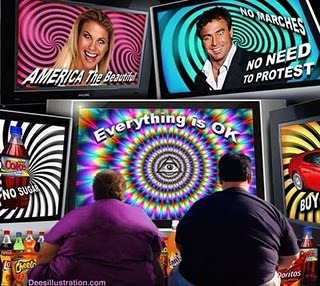One of the biggest transitions in our life today are the switches from physical storage to the so-called “Cloud Computing” or “The Cloud”. Many companies are moving their services making use of this relatively new model, with business such as DropBox providing the means to obtain parts of distributed work by a company.
Although efficient, “The Cloud” remains somehow confusing too many upcoming users. Dropbox has over one hundred million users, becoming the mainstream cloud product, at least to most companies, to work under certain aspects of commodity. Dropbox, as other cloud computing software, allows users to submit and retrieve files at any time and from different places, such as work, home, or practically any place with internet access.
So how does cloud computing work?

Lets say company X has 80 different computers for workers to use. As in most company, different workers need to share information such as documents, accounts, etc. For a long time in many businesses, when this was done, it was done the long way. Documents were created using Microsoft Office and, if they needed to be shared, they had to be attached on an email and sent this way. This process has a lot of obvious disadvantages. For example, every time someone opens the attached file a copy is made. This copy is independent from the other one, and someone can potentially modify or alter it, making different versions that had to be matched up in the future.
Cloud computing presents a solution to this problem. “Cloud” software, such as Dropbox, allows the file, instead of duplicating itself, to be upload to the server, where it can be retrieved and modified, but always staying in the same place and always being the same file. Cloud storage is also cheaper for users, as you are using storage from different companies (Gmail, Dropbox, Facebook), and by this you are not spending money on an external hardrive or having to deal with a slow computer.
Other advantages of cloud computing is the ability to have almost unlimited storage, backup and recovery, automatic software integration, and easier access to information.
Nevertheless, there are some disadvantages that come with this model.
First of all there are technical issues. Even though data can be access at any moment from any place, there is always a probability that the system may fall. Technology is always prone to outages and dysfunctions. Furthermore, accessing cloud storage requires an Internet connection, which as we know, is sometimes a little bit hard to get.
Another disadvantage of the system is the issue of security. With cloud computing, you are providing your personal information to a third-party company, disclosing things you might not want anybody else to see.
I believe cloud computing, overall, represents a benefit for society. I am more of a functionally type of person, and I think that this type of technology will make it easier for all of us. We just need to leave our mentality of hard drives and embrace a new one with the main purpose of sharing, as it is the motto in today’s globalized world.




